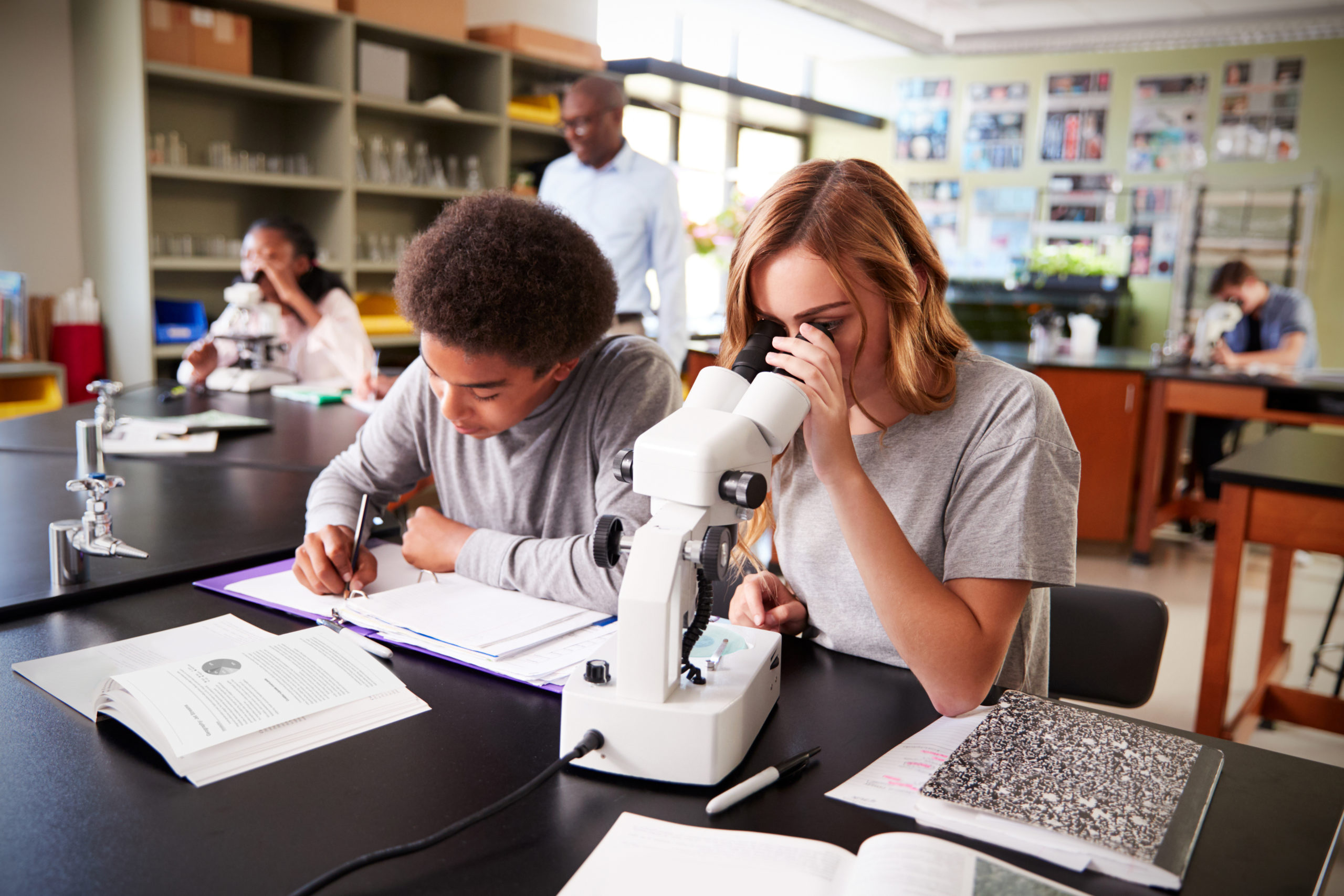What If Pests had a Favorite School Subject?
What If Pests had a Favorite School Subject?
Welcome back to our imaginary pest scenario series! The new school year is upon us, and we at Green Pest Services wish all students and parents the best of luck in this new school year! As students head back to school for yet another productive and exciting semester, the still-hot weather outside means that pests are continuing business as usual. Insects are ectothermic, meaning their body temperatures and energy levels are completely affected by their environment. They are still working hard to gather food and build their homes in the areas that annoy us the most, and some species are even working ahead to stock up for the winter, like bees. But what if pests could go to school and devote their energy to learning all kinds of facts and information? They would certainly have their own favorite subjects that make the school day more interesting, so let’s take a look at what some common insects and arachnids would consider to be their favorite classes!
Government/Economics – Ants

This is often the history class of senior year in high school, and most students either love the new focus or are utterly bored by it. One semester is focused on learning about the U.S. government and the other is about economics and stocks, giving seniors a taste of a college class schedule. One insect that can understand these subjects on a personal level is the ant because it lives in a colony with tens of thousands of fellow ants. Worker ants gather food, maintain the anthill, and take care of the queen, all of which keep the colony functioning properly. They would love Gov/Econ because it covers all of the basic concepts they already know. Ants would be a little lost at first since there is no monarchy in the government, but they would quickly catch on with the discussions about electing the right leaders, as ants actually usurp unproductive queens sometimes. Ants don’t have a financial economy (that we know about), but they would enjoy learning about how productivity earns money through the workforce and how it keeps this society afloat. The project where every student pretends to invest in stocks would be the ant’s favorite, since the concept of having currency to put into something you can’t physically touch would be wild to them!
Art – Butterflies

Butterflies are quite the opposite of a pest, as they are beneficial pollinators without the threat of stings or invading our homes. But we included them for the sake of this list because they would absolutely love art class. The wings of a butterfly are used as a perfect example of symmetry in just about every elementary school classroom, as the intricate designs on their wings are mirrored. These designs are more than just beautiful art pieces; they can be extremely useful if the design is used to ward off predators by looking like eyes, like the peacock butterfly, or like a different poisonous butterfly, like the swallowtail butterfly. These insects would look forward to art class every day, no matter what medium they would be working in. The butterfly would be naturally gifted at basically any type, whether it’s charcoal, colored pencil, pastels, or oil paint, though their favorite would be watercolors. And when given the choice to draw or paint anything of their choosing, butterflies would always pick the same thing: flowers, of course, but the most delicate and beautifully-drawn flower garden you’ve ever seen.
Music – Carpenter Bees

If you have been outside and seen a giant black bee gently buzzing from flower to flower, you have been in the presence of the intimidating yet docile carpenter bee. It gets its name from its home, which it makes in a piece of dead wood by gnawing through until it can make dividers and feel secure from the outside world. Its loud buzzing is from its wings and flight muscles, which it can even use to shake flowers and gather more pollen as a result. These buzzing bees would love music class and getting the opportunity to try different instruments that aren’t always in the school band. They would try anything from xylophones to drums to maracas and have a blast doing it. Carpenter bees would also enjoy learning about music history and different music genres, as they are open to all kinds of music. And when they have a project about their favorite artist or song to complete, they would spend almost all of their time trying to decide on just one to write about. But once they make that tough decision, carpenter bees would dedicate all of their energy to this assignment until it’s done perfectly, as they would definitely be perfectionists in their schoolwork as well.
Foreign Language – Earwigs

The standard foreign language offered at just about every school is Spanish, but some schools have an even wider variety of class offerings, like French, American Sign Language, or Mandarin. These classes are fun ways to use a different part of the students’ brains through trying to communicate simple messages in a new language. There are many team activities that teachers use to get students communicating more often, but learning a new language is largely an individual act as it is up to you to be able to speak and read this language. This independent class is perfect for the earwig. These pests are always found on their own, usually roaming our bathrooms or hallways. They prefer dark and damp places to live as they search for decaying vegetation or other insects to eat. Earwigs are self-sufficient insects that seem to get along fine in their lives (until we squish them), so they would love foreign language classes. They would probably take one that scare away many students with its intricate rules, like Mandarin, and would love it. We wouldn’t be surprised if the earwig is nearly fluent in the foreign language by the end of its school career.
English – Fireflies

Fireflies are also not usually regarded as pests since they tend to stay in open fields and meadows. Plus, they eat our annoying garden pests like slugs and snails, so they are actually quite beneficial. But the real appeal of fireflies is in their natural lights, caused by a biochemical reaction. They use this to communicate with fellow fireflies by attracting mates or warning of a predator, which is a pretty effective method of communication in our opinion. Since they have to be so efficient with their own special language, we believe fireflies would be big fans of English class. They would enjoy reading stories and poems from all kinds of genres, and learning how common language and plot lines have changed over the decades. Fireflies would be naturally gifted at crafting essays around literature and its themes, and they would much rather write an essay than do just about any other kind of homework. They would become pros at the timed essays that AP English classes require, since conveying their thoughts in as few words (or light flashes) as possible is their natural inclination anyway.
Culinary – Honeybees

Culinary is one of the best elective classes to take in school. Not only do students learn the important real-life skill of cooking and following a recipe, they also get some delicious food to take home! Honeybees understand the value of cooking and preparing meals for multiple people, as they spend their days manufacturing honey after the workers gather the central ingredient of nectar. The honeybees that stayed in the hive then add enzymes to the nectar and dry out the mixture with the wind of their wings before sealing it in covered cells. This process is a lot like cooking, since the bees prepare this honey to be stored as food for the colony later on. Honeybees would love culinary class, and not just for the free food. They would enjoy the teamwork of preparing these simple dishes with their kitchen group, and would be the ones to study the recipe intently so as not to miss a step. The honeybees wouldn’t mind doing any step of the cooking process – preparing raw chicken, boiling pasta, making a stovetop sauce – since they would be committed to making the food as delectable as possible. But of course, honeybees would be even more excited for the “labs” when the recipe of the day is more on the sweeter side, since this is their time to shine.
Biology – Mosquitoes

Mosquitoes are one of the most frustrating pests ever, likely because of the combination of their abundant population, appetite for our blood, and eerie whining sound that we hear when they buzz by our ears. It’s hard to believe that they are technically beneficial through their pollination of our flowers, as minimal as it is. Most mosquitoes only eat nectar, as it is the female mosquitoes who need protein for their eggs that drink our blood. With their diverse diet and life out in nature, mosquitoes would probably enjoy biology the most. They have experience being close with both plants and humans, so they would do great with both focuses. Mosquitoes would enjoy the labs the most since they are kinesthetic learners (we assume), and would learn much more by observing cells through a microscope or performing small-scale science experiments within a class period. But they would also just do generally well on tests and quizzes, since mosquitoes are very observant in seeking out carbon dioxide and red heat-signatures for blood sources. And if they enjoy general biology this much, they should look into majoring in Ecology in college!
Math – Spiders

Math is a very polarizing subject, even with all of its subcategories like algebra and geometry. Students either enjoy it and are naturally great at it, or despise it and feel like every new concept is more impossible than the last. Oftentimes, the students who enjoy this subject are more calculating and organized in certain ways in their everyday life. Such is the case with our old Halloween-mascot friend, the spider. Most spiders spin a web of some kind that can act as their home, a trap for insects, a parachute, a bungee cord, or a combination of these. Spiders are one of the more thoughtful pests, as they will patiently wait for their prey to aimlessly wander into their web; unless it’s something like a scary wolf spider, which only hunts for its prey without the use of a web. Spiders would be great at math and problem-solving, and would never be afraid of a math pop quiz. They would have the patience to work through each problem and love the challenge of solving each equation. And if they made a mistake and got the problem wrong, spiders would be able to backtrack and figure out their area of error on their own. Geometry would be their favorite, since measuring and making sure that sides match is their specialty.
Gym – Termites

Termites are one of the most expensive pests to treat, not because they’re massive or dangerous, but because they can cause an unimaginable amount of damage if they stay in one spot for long enough. They live in colonies that can number in the hundreds of thousands, with each termite having its own job to keep the colony thriving. The worker termites eat through the wood and structure it into different tunnels to give the colony a network of areas for living. The soldier termites protect the habitat and are on the lookout for any intruders or threats. With this amount of coordination and stamina, we can only assume that termites would enjoy gym class the most. This would be the perfect time for termites to get their energy out and put that high stamina to use. Termites would be those students in class who take the sports way too seriously, and be very competitive against their classmates. But when a termite gets paired up with another termite on the basketball court or soccer field, the game is basically already won. Termites would not care which sport or game was the focus of the day, as long as it’s not the dreaded timed-mile run because not even termites would enjoy that.
Pest Problem-Solving – Pest Control
Imagine if this was an extracurricular option! Unfortunately, this is still not a common class offering at average schools. But professional pest control technicians go through extensive training and shadowing in order to know exactly what treatments to use and how to effectively prevent pests long-term. Our team is ready and willing to solve all kinds of pest problems and answer any questions. Contact us for more information on how we can treat your pest problems, homework-free!
Citations
Anderson, C. (2022, July 14). How do bees make honey?. Carolina Honeybees. Available at https://carolinahoneybees.com/how-honey-bees-make-honey/ (Accessed on August 10, 2022).

